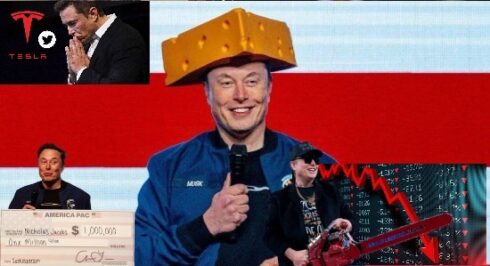Elon Musk, the influential entrepreneur and CEO of Tesla, is expected to step down from his role as the head of the White House’s Department of Government Efficiency (DOGE) in the near future. President Donald Trump has reportedly informed his Cabinet and close contacts of Musk’s impending departure, stating that the decision was mutual and amicable. Although no specific timeline for the transition has been provided, this development marks a significant turning point in Musk’s controversial tenure at DOGE.
Cost-Cutting Crusade: Slashing $1 Trillion in Federal Spending
During his time at the helm of DOGE, Elon Musk spearheaded an ambitious initiative to reduce federal spending by an unprecedented $1 trillion. His aggressive cost-cutting measures targeted various government programs, sparking heated debates among political analysts and lawmakers alike.
Among the most controversial moves was the reduction of funding to social welfare programs, a decision that prompted widespread protests across major U.S. cities. Critics argued that the cuts disproportionately affected vulnerable communities, while supporters praised Musk’s commitment to fiscal responsibility and efficiency.
One of Elon Musk’s primary arguments centered around eliminating redundancy in government projects and streamlining operations through automation and technology integration. While these measures garnered support from conservative circles, they also attracted sharp criticism from public sector workers and union leaders.
Public Backlash and Legal Challenges
Elon Musk’s cost-cutting strategies did not go unchallenged, as multiple lawsuits were filed against DOGE, accusing the department of overstepping constitutional boundaries. Civil rights organizations and advocacy groups argued that the drastic reduction in social program funding violated federal mandates and jeopardized essential services.
In response to public outrage, protests erupted in key cities, including Washington D.C., New York, and Los Angeles. Demonstrators condemned Musk’s role in shrinking government assistance programs, holding placards with slogans like “People Over Profit” and “Efficiency Without Empathy.”
Despite the mounting pressure, Musk remained resolute, defending his decisions as necessary steps toward reducing America’s burgeoning national debt. However, insiders suggest that the intense scrutiny took a personal toll, fueling his decision to step down.
Tesla’s Downturn: Political Involvement Hits Business
The fallout from Musk’s political role at DOGE extended beyond the government sphere, impacting his corporate empire. Tesla, Musk’s renowned electric vehicle company, reported a concerning 13% drop in deliveries during the first quarter of the year. Industry analysts have partly attributed the decline to backlash over Musk’s controversial government involvement.
Some customers expressed dissatisfaction with Musk’s perceived alignment with the Trump administration, prompting boycotts and social media campaigns urging the public to abandon Tesla products. As public sentiment soured, Tesla’s stock price also took a hit, compounding challenges for the automaker already grappling with production delays.
In a statement addressing the decline, Elon Musk acknowledged the difficulties but maintained that Tesla’s long-term vision remained unchanged. Nevertheless, investors have expressed growing concern over the potential for continued losses if the public backlash persists.
White House Reactions: A Mutually Agreed Transition
President Trump, in a closed-door meeting with his Cabinet, acknowledged Musk’s efforts and expressed his gratitude for the billionaire’s dedication to governmental efficiency. According to sources familiar with the discussion, Trump and Musk both agreed that stepping down was the best course of action given the circumstances.
“The president values Elon’s contributions to reducing government waste and inefficiency,” said a senior White House official. “This decision reflects their shared understanding that it’s time for new leadership at DOGE.”
Despite the official stance, some political insiders speculate that Trump’s willingness to let Musk step down could reflect concerns over the political fallout from Musk’s tenure. With elections looming, distancing the administration from controversy could prove beneficial.
Potential Successors: Who Will Lead DOGE Next?
As speculation mounts regarding Musk’s departure, questions have emerged about his potential successor. Several names have surfaced, including Vice President Mike Pence and former Treasury Secretary Steven Mnuchin, both of whom have expressed interest in continuing DOGE’s cost-cutting mission.
However, analysts caution that the next leader will need to strike a delicate balance between fiscal prudence and public welfare, a challenge that proved daunting even for Elon Musk. Observers predict that the administration may favor a more politically tempered figure to mitigate public discontent.
Meanwhile, Democrats have called for a complete reassessment of DOGE’s mandate, arguing that prioritizing cost-cutting at the expense of essential services is fundamentally misguided.
Musk’s Legacy: Innovator or Controversial Figure?
Elon Musk’s tenure at DOGE has been nothing short of polarizing. While some view him as a visionary committed to streamlining government processes, others accuse him of prioritizing efficiency over humanity. His departure will undoubtedly leave a lasting impact on the perception of public-private partnerships in government reform.
From revolutionizing the automotive industry to navigating political turbulence, Elon Musk’s journey has always been marked by bold choices and undeniable ambition. As he steps down from his government role, questions remain about how history will judge his efforts to reshape federal spending.
For now, the world watches as Musk prepares to return his full attention to his ventures in technology and space exploration. Whether his resignation from DOGE will restore Tesla’s market confidence and public favor remains to be seen.
What Lies Ahead for Musk and DOGE
As Elon Musk transitions out of his leadership role at DOGE, the path forward remains uncertain. His departure leaves a void that the administration will need to fill swiftly, balancing the pursuit of efficiency with the need for compassionate governance.
Elon Musk’s journey from Silicon Valley innovator to government reformer was marked by both acclaim and controversy, a legacy that will undoubtedly shape public discourse for years to come. Whether his exit signals a shift in the White House’s approach to government efficiency remains an open question, but one thing is certain: the Elon Musk era at DOGE will be remembered as a bold experiment that stirred both admiration and dissent.














